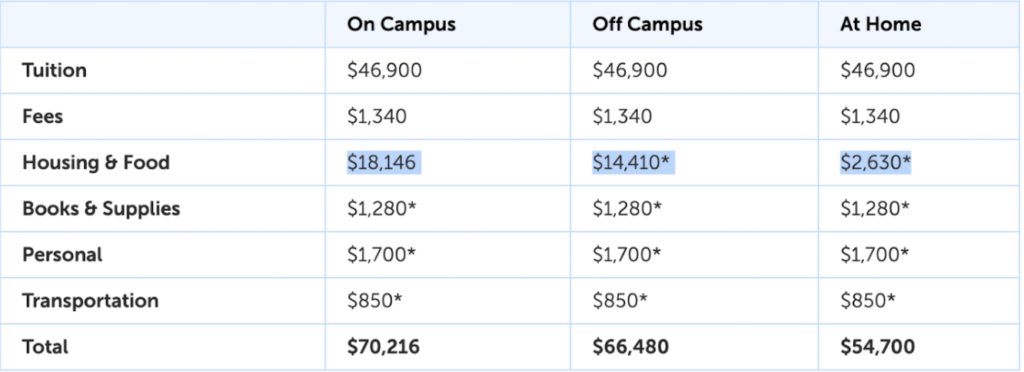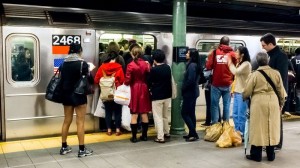
Saving money is the only positive to commuting that you need, at least that is probably what your parents will argue. But when you are taking out loans to cover your tuition, all money begins to feel fake. Saving thousands, but still paying thousands begins to feel like it’s not worth it. In the long run it is, but while you are still in college it is helpful to look at the current positives.
Living at home
There are lots of particular benefits you get when you live at home. Some of them are noticeable, others you may take for granted. Whenever I get stressed about commuting I like to remind myself of some of the perks.
Here is a run down of some basic benefits of living at home while in college:
- Home cooked meals.
- Snacks (not just a random assortment of dining hall food that you have collected).
- A kitchen that isn’t communal with strangers.
- No housing restrictions. (Also known as have as many candles as you want.)
- A full size fridge.
- Your own bed. (No shade to the twin xl, some of the best naps I have taken were on a twin XL. However there is a whole different type of comfort that your own bed provides.)
- Your own space.
- You get to live with your childhood pets.
- Strangers won’t be able to touch your laundry.
- You also will not have to wait for a washer to be free because all ten are being used by other students.
- No fire alarms going off early in the morning because someone decided to burn mac and cheese.
- No crowded elevators.
There are of course an abundance more, some are niche and personal, others universal. Sometimes you need to rationalize, even if it seems counter-intuitive.
Saving money means you can spend a little more on yourself–right?
Saving money means surely you can spend a little more on yourself. Take this with a grain of salt, while living at home you want to be financially responsible. Save money while you can, of course. If you do think about it you are saving thousands, so if buying that cute tote you have wanted or getting your nails done makes you happy, why not?
Perhaps it is bad advice, but commuting is hard. I have discovered that when I feel put together and have little things like cute nails, which I couldn’t afford on campus, it allows me to feel the positives of commuting instantly.
Get into that routine
When you are in college, you get into a routine. This is true whether you live on campus or not. The best thing about commuting is there is less disruption to your routine.
You don’t have to worry about packing your life back up again and again. You have everything in one spot whether it is during the semester or winter break. You can go to the same gym, the same coffee shop, the same library throughout the year. There is value in consistency and familiarity. It is comfortable.
That being said you can get out of your comfort zone if you so choose. Even though it may not feel like it, being in your childhood home and all, there are places nearby that you may have never experienced. If you have access to a car you have the ability to go where you want when you want. Having a car and being at home doesn’t mean you have to go to the same few places you have been going to for years.
One thing I’ve learned is you can travel and see areas that have been next door to you your whole life. Explore the trails near you and take little road trips to places close by. It is even more fun bringing your college friends from campus to see your town and state with you. Taking the time to experience your home town before you become a visitor in it, is rewarding and can be sentimentally fun.
Commuting is hard work, but if you romanticize it enough and prioritize yourself, it can still be a well rounded college experience.

By Isabel DeSisto
Isabel DeSisto is a senior majoring in Writing, Literature, and Publishing at Emerson College. She is an avid traveler and is always looking to go on a trip. While adventurous, there is nothing she enjoys more than hanging out with her dogs and reading a book.
For over 25 years, the Campus Clipper has helped college students in New York City—and later in Boston and Philadelphia—save money and succeed in city life. We offer a digital coupon booklet with discounts on food, clothing, and services, plus an Official Student Guidebook with real advice on how to navigate college life in a big city. Our internship program lets students build skills, earn money, and publish their own e-books. Follow us on Instagram and TikTok @CampusClipper, and sign up for our newsletter to get deals straight to your inbox. To access the digital coupons, scan the QR code on our printed card—available in dorms, student centers, and around campus.








